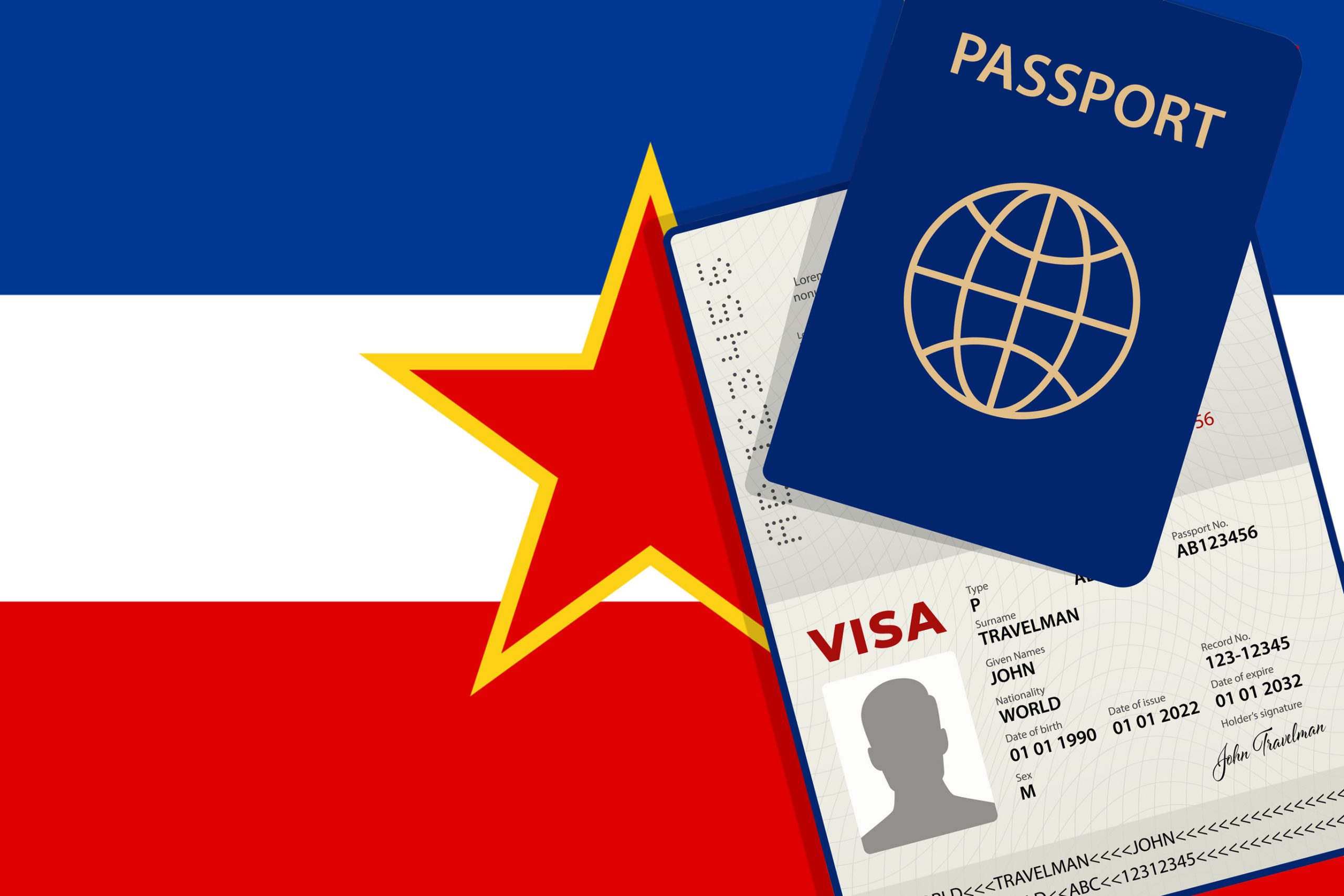With over 300,000 Australians claiming ancestry from former Yugoslav republics according to the 2021 Australian Census, the need for properly translating Yugoslavian documents continues to grow. Many document submissions face delays or rejection due to translation issues, creating frustration and setbacks for applicants.
Citizenship applications, visa processing, and legal matters all hinge on properly translated and certified documents from the former Yugoslavia that meet Australian government standards. This guide covers six essential facts about translating Yugoslav documents that will help streamline your dealings with Australian authorities.
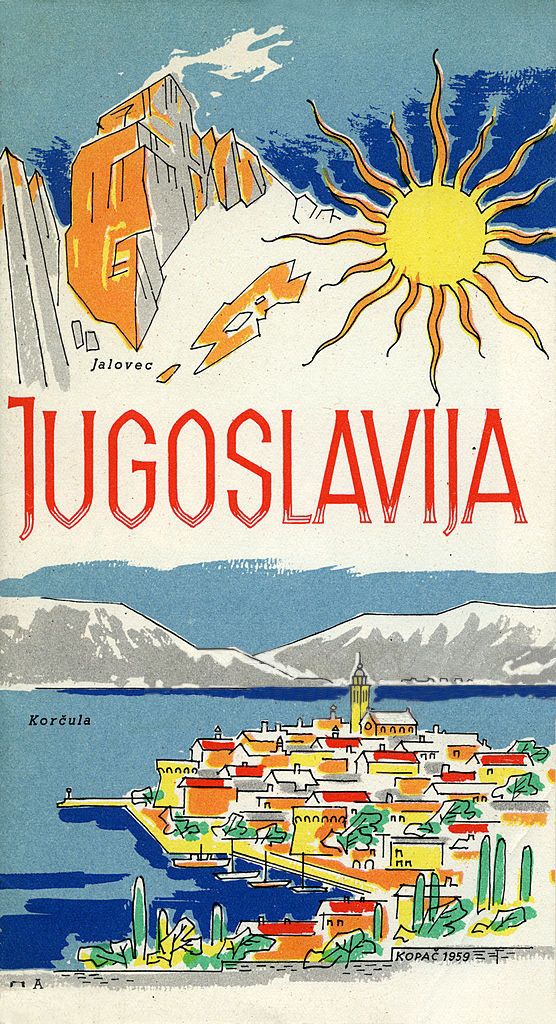
1. Understanding the Yugoslav Document Landscape
The dissolution of Yugoslavia has created a unique challenge when translating Yugoslavian documents. What was once a single country is now seven independent nations (Slovenia, Croatia, Bosnia and Herzegovina, Serbia, Montenegro, North Macedonia, and Kosovo), each with its own administrative systems and document formats.
As there is no NAATI certification for Serbo-Croatian or ‘Yugoslavian’ language, all translations will have to be done in either the Serbian, Croatian, Bosnian or Montenegrin languages.
Common Yugoslav documents that frequently require translation include:
- Birth certificates (izvod iz matične knjige rođenih/rojstni list/извод од матична книга на родените)
- Marriage certificates (izvod iz matične knjige venčanih/poročni list/извод од матична книга на венчаните)
- Death certificates (izvod iz matične knjige umrlih/mrliški list/извод од матична книга на умрените)
- Criminal history checks (uverenje o nekažnjavanju/potvrda o nekažnjavanju/уверение за неосудуваност)
- Academic credentials (diploma/svjedodžba/свидетелство)
- Property documents (dokumenti o nekretninama/dokumenti o nepremičninah/документи за недвижнини)
When translating Yugoslav documents, it’s important to note that formats and terminology have changed since the country’s dissolution. Our specialized team has extensive experience translating Yugoslav documents from all seven successor states.
○ Handy Tip: Even if your original documents were issued in the former Yugoslavia, you’ll need to obtain current versions from the successor state where the records are now held. Most successor states can provide historical records for events that occurred during the Yugoslav era.
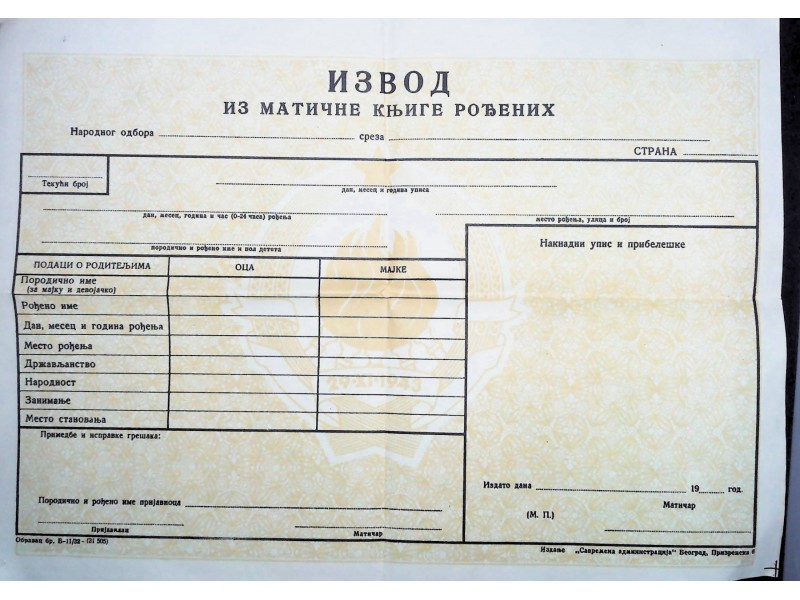
2. Document Authentication: Apostille vs. Notarisation
Before translating Yugoslav documents, you may need to authenticate them—a step that ensures the document is recognised as legitimate by Australian authorities.
Apostille Certification
All former Yugoslav republics are members of the Hague Apostille Convention, which simplifies the authentication process:
- An Apostille stamp or certificate from the issuing country verifies the document’s authenticity
- Once apostilled, the document is recognised by all Convention countries, including Australia
- Both the original document and the Apostille must be translated together
Notarisation
Some documents may require notarisation instead of or in addition to Apostille:
- A notary public in the country of origin verifies the document
- May be required for certain legal documents like power of attorney
- The notarisation must also be translated as part of the official document
○ Handy Tip: When obtaining documents from former Yugoslav republics, ask specifically for an Apostille at the time of application. Adding it later often requires a separate application process and additional fees.
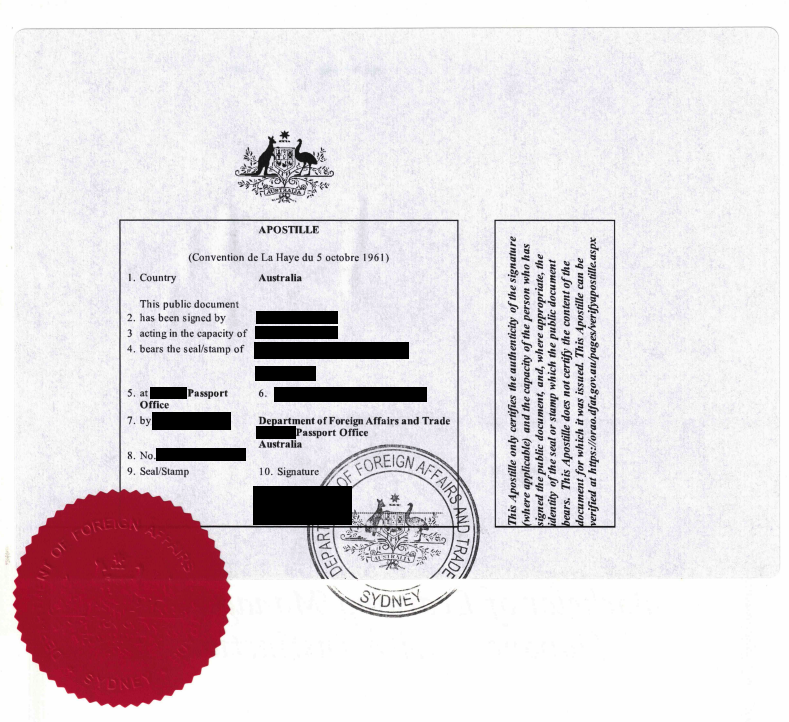
3. Court vs. Police Criminal History Certificates
Special considerations apply when translating Yugoslav documents related to criminal history. One of the most important is knowing the difference between court-issued certificates and police clearance certificates, as this can significantly impact your Australian visa or citizenship application.
Court Certificates (Uverenje iz kaznene evidencije suda/Уверение од казнена евиденција на судот)
- Issued by regional or municipal courts
- Verify whether you have been convicted by that specific court
- Limited to the jurisdiction of the issuing court
- May not reflect criminal history from other regions
Police Clearance Certificates (Uverenje iz kaznene evidencije MUP-a/Уверение од казнена евиденција на МВР)
- Issued by the Ministry of Interior (MUP/МВР)
- Comprehensive national record check
- Includes any criminal history throughout the entire country
- Generally preferred by Australian immigration authorities
○ Handy Tip: For Australian immigration purposes, always obtain police clearance certificates rather than court certificates, as Australian authorities typically require confirmation that you have no criminal record throughout the entire country, not just in a single jurisdiction.
4. Why NAATI Certification is Essential for Translating Yugoslav Documents
The National Accreditation Authority for Translators and Interpreters (NAATI) is the standards body for the translation industry in Australia, and government departments require this certification for document authenticity.
Key points about NAATI-certified translations:
- Required by the Department of Home Affairs for visa applications
- Essential for citizenship applications
- Needed for academic institutions and professional registration
- Required for legal proceedings and court submissions
- Necessary for many financial and property transactions
○ Handy Tip: Even if a document has been previously translated in the country of origin, Australian authorities will still require a NAATI-certified translation. Save time by going directly to a NAATI-certified translator rather than using non-certified translations that will likely be rejected.
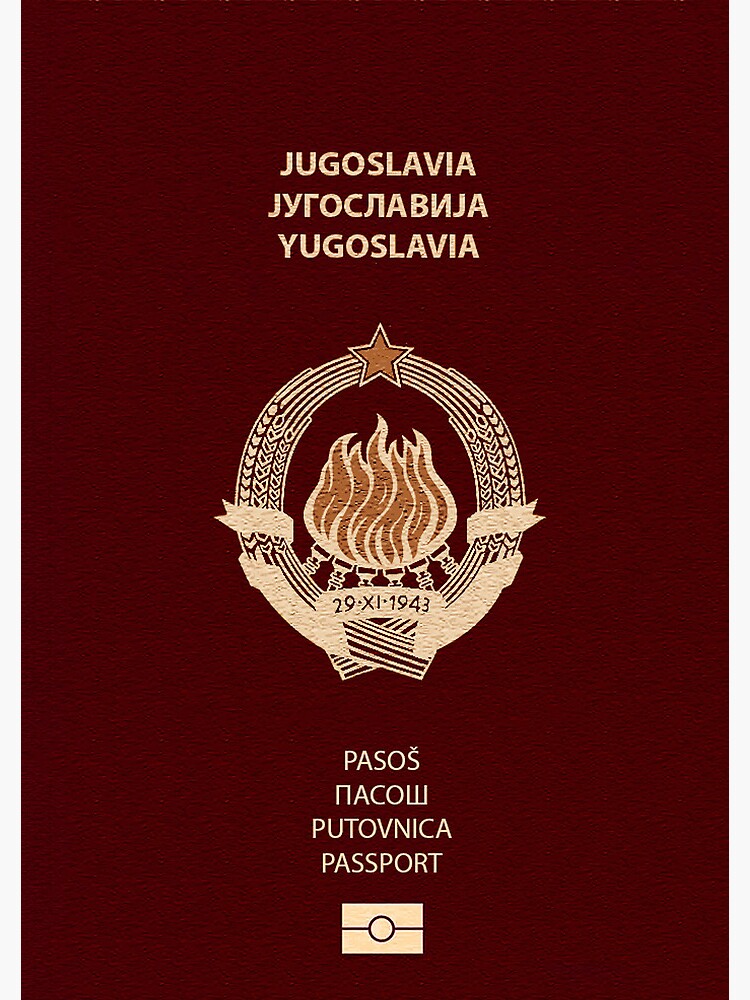
5. Translating Yugoslav Passports
Many people still require their original Yugoslav passport (Пасош/Pasoš/Putovnica) translated when apply for new Australian passports. These passports were originally issued in Serbo-Croatian, or less commonly in Slovenian or Macedonian. As such the translation will have to be from relevant language into English for Australian and New Zealand official purposes. Thankfully as Balkan Translations we offer translation services in all of these languages.
Keep in mind that the old Yugoslav passport doesn’t contain security features such as biometric or plastic components and the key information is spread across various pages.
When having these documents translated, we recommend that you send through:
- A clear photo of red front of the passport
- All required pages needing translating
- Separate photos of any visas or immigration cards which may have been stapled on to the passport itself.
6. Language Considerations When Translating Yugoslav Documents
Although the languages of the former Yugoslavia share similarities, the differences can significantly impact translation accuracy and document acceptance.
Key language considerations:
- Serbian, Croatian, Bosnian, and Montenegrin are considered separate languages despite their similarities
- Slovenian and Macedonian are distinctly different from the above group
- Some documents may contain terms from multiple languages or obsolete Yugoslav terminology
- Technical and legal terminology can vary significantly between countries
At Balkan Translations, our NAATI-certified translators are native speakers who understand both the linguistic and administrative contexts of each former Yugoslav republic.
○ Handy Tip: When submitting documents for translation, always specify the exact country of origin, even if you think the languages are similar. This helps ensure the translator understands any country-specific terminology or administrative systems that might affect the translation.
Common Questions About Translating Yugoslavian Documents
How Long Does NAATI-Certified Translation Take?
Standard processing for most Yugoslav documents takes 3-5 business days. Express services are available for urgent requirements, often with 24-48 hour turnaround.
Can I Translate My Own Documents?
No, self-translations are not accepted by Australian authorities for official purposes. Translations must be completed by independent, NAATI-certified translators who can certify the accuracy and completeness of the translation.
What If My Yugoslavian Document Contains Errors or Inconsistencies?
The translation must reflect the original document exactly as it appears, including any errors. However, the translator may include notes explaining obvious discrepancies. If the document contains significant errors, it’s best to obtain a corrected version from the issuing authority before translation.
Do I Need to Provide the Original Document?
For translation purposes, high-quality scans or photocopies are usually sufficient. However, some Australian authorities may require sight of original documents alongside the NAATI-certified translations when you submit your application.
Ready to Translate Your Yugoslavian Documents?
Translating Yugoslavian documents correctly is a crucial step in your Australian documentation process. At Balkan Translations, we provide expert, NAATI-certified translations for all languages of the former Yugoslavia, ensuring your personal documents meet all Australian requirements.
Contact us today for a free quote or to learn more about our translation services.

